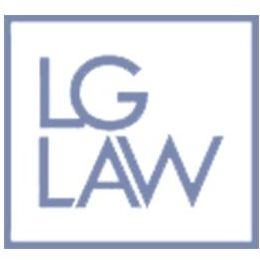Consumer Protection Claims in Missouri: What You Need to Know
Consumers are entitled to fair and honest treatment when purchasing goods or services. Unfortunately, deceptive business practices, false advertising, and fraud can undermine these rights, leaving consumers feeling cheated or financially harmed. In Missouri, state laws provide strong protections for consumers and legal recourse for those who have been wronged by businesses. If you believe you have been the victim of a fraudulent or unfair business practice, a consumer protection claim may help you recover damages and hold the offending party accountable. In this blog post, we’ll explore what consumer protection claims are, the types of practices that are prohibited, and what steps you can take to protect your rights in Missouri.
What is a Consumer Protection Claim?
A consumer protection claim is a legal action taken by an individual who has been harmed by unfair, deceptive, or fraudulent business practices. These claims are designed to protect consumers from dishonest practices and to promote fair and ethical treatment in the marketplace. In Missouri, the primary law governing consumer protection is the Missouri Merchandising Practices Act (MMPA). The MMPA is a powerful tool that allows consumers to seek compensation for losses resulting from a wide range of deceptive business practices.
The Missouri Merchandising Practices Act (MMPA)
The Missouri Merchandising Practices Act is a state law that prohibits any deception, fraud, false promise, misrepresentation, unfair practice, or omission of material fact in connection with the sale or advertisement of merchandise. The MMPA is broadly written, which means it can apply to many different types of consumer transactions, including:
- The purchase or lease of goods and services.
- The sale or rental of real estate.
- Financial and lending services.
- Insurance sales and policies.
- Home repairs and improvements.
One of the key benefits of the MMPA is that it provides protections that go beyond those offered by federal consumer protection laws. While the Federal Trade Commission (FTC) regulates certain business practices, the MMPA is more comprehensive and can cover a wider range of conduct.
Common Types of Consumer Protection Violations
Under the MMPA, there are several common practices that are considered violations and could form the basis of a consumer protection claim. Some of the most frequently encountered violations include:
False Advertising
- Making false, misleading, or deceptive statements in advertisements. This can include exaggerating the qualities or benefits of a product or service, misrepresenting prices, or making false claims about discounts or limited-time offers.
Bait-and-Switch Tactics
- Advertising a product or service at a low price to attract customers, only to switch them to a more expensive or lower-quality item once they are in the store or have made contact.
Hidden Fees
- Charging hidden fees that were not disclosed at the time of the transaction. This often occurs in contracts for services such as cable, cell phone plans, or rental agreements.
Misrepresentation of Products or Services
- Making false statements about the features, quality, or performance of a product or service. This can include misleading consumers about a product’s origin, durability, or ability to meet specific needs.
Fraudulent or Deceptive Sales Practices
- Using high-pressure sales tactics, failing to disclose material information, or providing false information to induce a consumer to buy a product or service.
Omission of Material Facts
- Failing to provide important information that would influence a consumer’s decision to purchase a product or service. For example, not disclosing known defects in a used car.
Violation of Express or Implied Warranties
- Failing to honor a warranty or guarantee on a product or service. This can include both express warranties (written or spoken guarantees) and implied warranties (such as the implied warranty of merchantability).
Home Repair Scams
- Fraudulent contractors may take payments for home repairs or improvements and fail to complete the work, perform substandard work, or use inferior materials.
Debt Collection Harassment
- Using abusive or deceptive tactics to collect debts, such as making false threats, contacting you at unreasonable hours, or misrepresenting the amount owed.
How to File a Consumer Protection Claim in Missouri
If you believe you have been the victim of a deceptive business practice, it’s important to understand the steps involved in filing a consumer protection claim. Here’s a general outline of the process:
Document the Violation
- Gather all relevant documents and evidence related to the transaction, including receipts, contracts, emails, advertisements, and any other communications with the business. Keep detailed notes of what was promised, what was delivered, and how you were harmed.
Attempt to Resolve the Issue Directly
- Before filing a formal complaint, try to resolve the issue directly with the business. Send a written complaint to the business owner or customer service department, outlining the problem and the resolution you are seeking.
File a Complaint with the Missouri Attorney General’s Office
- The Missouri Attorney General’s Office handles consumer protection complaints. You can file a complaint online, by mail, or by phone. The Attorney General may investigate your complaint and, in some cases, take legal action against the business.
Consider a Civil Lawsuit
- If you are unable to resolve the issue through the Attorney General’s office or directly with the business, you may have the option to file a civil lawsuit under the MMPA. An experienced consumer protection attorney can help you assess whether you have a viable claim and guide you through the process.
Statute of Limitations
- Under the MMPA, you generally have five years from the date of the deceptive act to file a lawsuit. However, it’s best to act as quickly as possible to preserve your rights and strengthen your case.
Remedies Available Under the MMPA
If your consumer protection claim is successful, you may be entitled to various forms of compensation, including:
Actual Damages
- Compensation for the financial losses you suffered as a result of the deceptive practice. This can include the cost of the product or service, as well as any additional expenses you incurred.
Punitive Damages
- In cases where the defendant’s conduct was particularly egregious, the court may award punitive damages to punish the wrongdoer and deter similar conduct in the future.
Attorney’s Fees
- The MMPA allows successful plaintiffs to recover reasonable attorney’s fees, which can make pursuing a claim more affordable.
Injunctive Relief
- In some cases, the court may issue an injunction to prevent the business from continuing the deceptive practice or to require them to take specific actions to remedy the harm.
Why You Need a Consumer Protection Attorney
While the MMPA provides powerful protections for consumers, filing a claim and navigating the legal process can be complex. An experienced consumer protection attorney can:
- Help you determine whether you have a valid claim under the MMPA.
- Gather and present evidence to support your case.
- Negotiate with the business or its legal representatives.
- Represent your interests in court if a lawsuit is necessary.
How LG Law LLC Can Help
At LG Law LLC, we understand the frustration and financial harm that can result from deceptive business practices. Our experienced consumer protection attorneys are committed to helping clients in Missouri hold businesses accountable and recover the compensation they deserve. Whether you have been the victim of false advertising, fraud, or another type of consumer violation, we are here to provide the legal guidance and representation you need.
If you believe you have a consumer protection claim, contact us today to schedule a consultation. Let us help you protect your rights and achieve a fair resolution.









